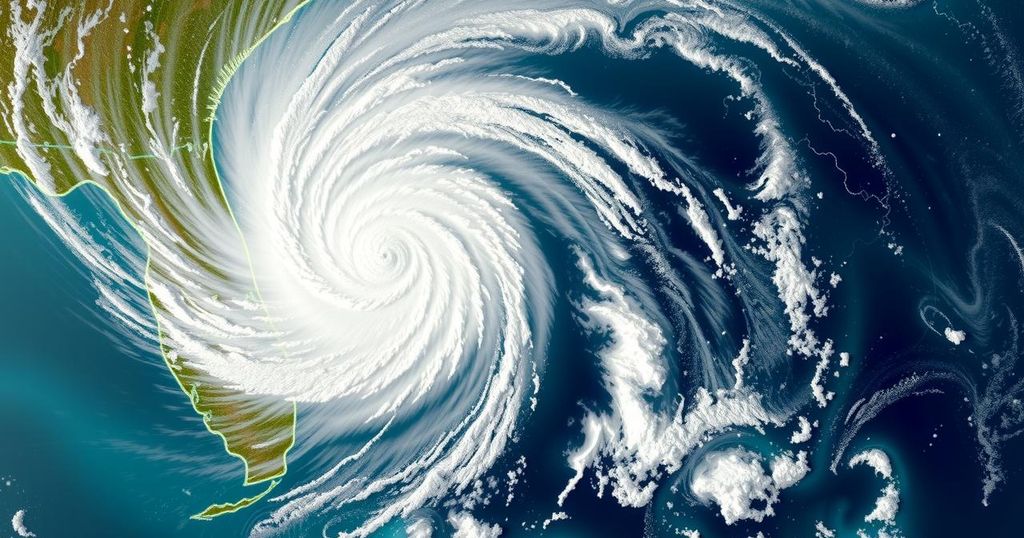Tropical Cyclone Chido: A Severe Threat to Mozambique’s Northern Provinces

Tropical Cyclone Chido is a severe weather event predicted to strike Pemba, Mozambique, on December 15, 2024, with potential winds of up to 120 km/h and heavy rains of 200mm. The cyclone primarily threatens Cabo Delgado and Nampula, where significant urban flooding and a worsening cholera outbreak may occur. Approximately 1.7 million people are at risk, necessitating urgent disaster management efforts.
Tropical Cyclone Chido is forecasted to make landfall in Pemba, Mozambique, in the early hours of December 15, 2024, classified as an Intense Tropical Cyclone. Expected impacts will primarily affect the northern provinces of Cabo Delgado and Nampula, with potential influences extending to Niassa, Tete, and, to a lesser degree, Zambezia. The cyclone is predicted to unleash heavy rainfall of up to 200mm within 24 hours, accompanied by winds reaching speeds of 120 km/h, mirroring the intensity of previous cyclones, including Gombe in 2022 and Freddy in 2023. The World Food Programme’s Disaster Analysis and Mapping (ADAM) system identifies approximately 1.7 million individuals at risk, notably highlighting that 1 million people in Cabo Delgado could experience wind speeds exceeding 120 km/h.
In anticipation of the cyclone’s effects, the Government-led Technical Council for Disaster Management convened on December 12. During this meeting, officials noted that river basins remain below alert levels; however, there is a significant likelihood that certain basins in the at-risk regions will reach critical alert thresholds. Urban flooding remains a pressing concern in Pemba City, particularly in neighborhoods such as Bairro Cariaco, Alto Chuiba, Eduardo Mondlane, Natite, Ingonane, Paquetequete, and Carioca. Moreover, there are heightened fears that Cyclone Chido may exacerbate the ongoing cholera outbreak in Nampula, which has already reported 283 cases and 21 fatalities as of December 11, 2024 (OCHA, 13 Dec 2024).
The topic of Tropical Cyclones and their impacts in Southeast Africa is critical, particularly during the cyclone season which typically escalates from November through April. Mozambique is especially vulnerable due to its geographical exposure to the Indian Ocean, which can generate intense cyclonic activities. The consequences of these weather events are often exacerbated by pre-existing conditions such as cholera outbreaks, thus posing a dual threat to public health and safety. Local governments, along with international aid organizations like the World Food Programme and the Office for the Coordination of Humanitarian Affairs (OCHA), continuously monitor such events to manage disaster response effectively.
In conclusion, Tropical Cyclone Chido poses a severe threat to Mozambique, particularly the northern provinces, with significant risks of heavy rainfall and violent winds. The government is actively engaged in monitoring and preparing for potential disasters. Furthermore, the combination of the cyclone’s impacts and the existing choleral outbreak presents a critical public health challenge that requires immediate attention and action from health authorities and humanitarian organizations. It is imperative for communities and policymakers to prioritize disaster resilience strategies to mitigate the impacts of such natural catastrophes in the future.
Original Source: reliefweb.int






